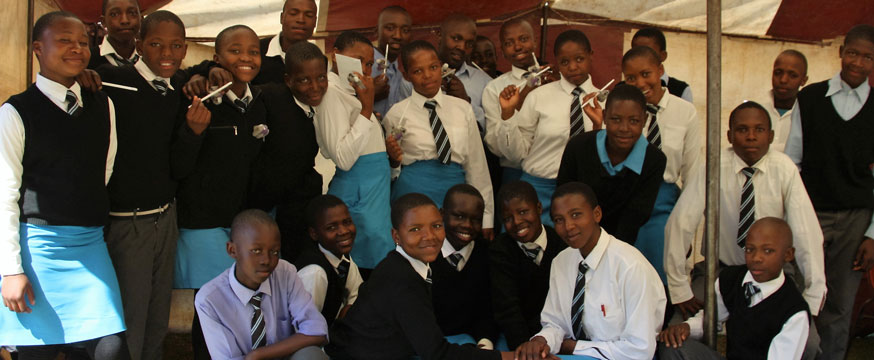
Making a difference in Lesotho
Research 26 Apr 2017 3 minute readACER is providing financial and in-kind support to schools and students in the Kingdom of Lesotho.
The Australian Council for Educational Research (ACER) through the ACER Foundation is providing support for schools in the Berea district in north-west Lesotho through the Making a Difference program.
ACER’s support includes capital works funding to build school buildings and provide heating in classrooms, and funding for vulnerable children in Makhalong Village to attend high school.
In 2014, a team from ACER that included Pam Munro-Smith, a Research Fellow in ACER’s Assessment and Psychometric Research program, visited Lesotho to carry out work with the Examinations Council of Lesotho, funded by the World Bank. During that visit, the team learned that:
- around 40 per cent of the people live below the international poverty line of USD1.90 a day
- one in three children are orphans and life expectancy is 48.7 years, and
- Lesotho has been classified by the United Nations as one of the world’s least developed countries.
Since 2014, Ms Munro-Smith has worked with Thabang Phohlo, from the Examinations Council of Lesotho, and with Makhalong Village to establish a committee and identify 33 vulnerable students requiring support to complete secondary school. Each has now been voluntarily sponsored by ACER staff members to complete their secondary school education and is being provided blankets, shoes and food.
ACER through the ACER Foundation is consolidating that work as the first instance of its ongoing Making a Difference program to support education projects in marginalised communities, with Ms Munro-Smith as the project director.
In late 2016, Ms Munro-Smith visited Lesotho when four tonnes of Action Literacy and Numeracy learning resources, donated by ACER, were distributed to schools in Makhalong Village. ‘Principals and teachers reported that the learning resources relate directly to curriculum outcomes and are being used to teach reading skills and strategies,’ Ms Munro-Smith said. ‘Teachers also reported that the teacher guides and workbooks are very helpful.’

Image © ACER
While in Lesotho, Ms Munro-Smith delivered further learning materials to the schools donated by Australian educational suppliers, Modern Teaching Aids and Genie Educational, and demonstrated how the learning materials can be used to support teaching and learning.
‘The school visits have also enabled me to identify an urgent need for capital works at Mollele Primary School,’ Ms Munro-Smith said.
Following discussions with local and district education authorities, as well as Lesotho’s Minister of Education and Training, ACER is funding the capital works, drawing on a selection of standard school building plans supplied by the Ministry of Education and Training.
According to Mr Phohlo, his involvement as chair of the village committee overseeing the work is, ‘The best, greatest thing I have ever done in my entire life.’
ACER will supply a further four tonnes of Action Literacy and Numeracy learning resources to be distributed to schools by the Ministry.
The delivery of more learning resources, and supporting workshops on teaching and learning, are being planned for later in 2017.
Further information:
To find out more about the ACER Foundation, visit www.acer.edu.au/about-us/foundation